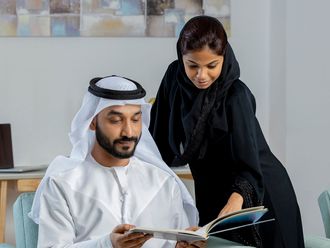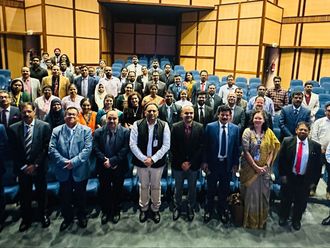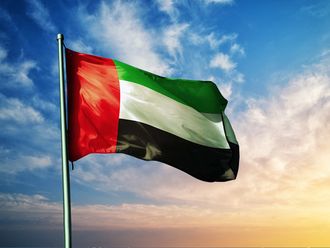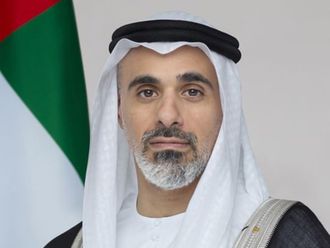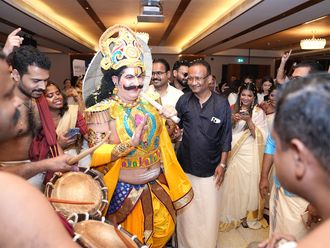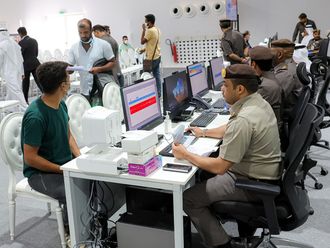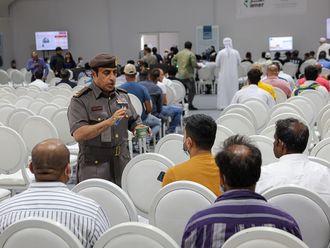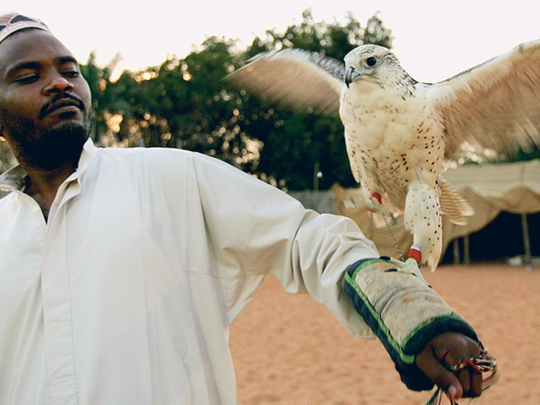
Dubai: It is a very valued tradition that has been extensively practised in the UAE for decades, and plays an important role in the life of desert people.
Falconry is known as Al Saqarah in Arabic, while a falcon is called Al Saqr.
According to studies, Falconry was spread by Arabs to Byzantium and Persia.
The falcon is considered one of the important features of the UAE's cultural heritage and was practised and supported by Shaikh Zayed Bin Sultan Al Nahyan who said, "Falconry teaches endurance, strength, and patience."
Great attention is also paid to the hunting sport by His Highness Shaikh Mohammad Bin Rashid Al Maktoum, Vice-President and Prime Minister of the UAE and Ruler of Dubai.
Prior to the discovery of oil, falconry was commonly used for hunting as a main source of living for the desert people.
In the past whenever people expect important guests, they would go hunting with falcons to gather enough food to welcome their guests. Today, falconry is only a sport.
The birds with their large eyes and sharp sight make them much coveted by Emiratis.
The falcon has always been mentioned and recited in poems by both historic and modern Emirati poets.
The two main species used for hunting in the UAE are falcons, Cherruq, and Peregrinus.
Hunting
The female falcon, Al Hurr, which is larger and more powerful, is used more than the male Garmoush. The female Peregrine Shahin or Bahri Shahin is better than the male Shahin Tiba, for hunting purposes.
Skill, bravery and patience are fundamental elements to trap and train a falcon. The falconer uses a leather-hood to cover the falcon's eyes and it will be deprived of food to make it easier to control.
The falconer remains with the falcon all the time in the first weeks to build a close relationship, and during the day it perches on the falconer's leather sleeve and is always kept near the lure.
At night, tethers are attached by a shorter cord to a swivel on a small mushroom shaped wooden perch on a stake in the sand, which helps the falcon to move about more freely.
During this period the falconer names the falcon and calls to it so it learns to identify his voice from a far distance.
Live prey is essential in training, a pigeon will be tethered for example, upon which the falcon will be allowed to swoop before the falconer lures it away with meat.
Such training is significant as it educates the falcon to not immediately kill its prey.
This allows Muslim hunters to be able to eat the prey according to Islamic rules which say that the prey must be slaughtered by slitting the animal's throat.


